Coventry University student wins national nursing award
A nursing student at Coventry University who has juggled being a mum, a learner and volunteering in Africa has won a national award.
Search
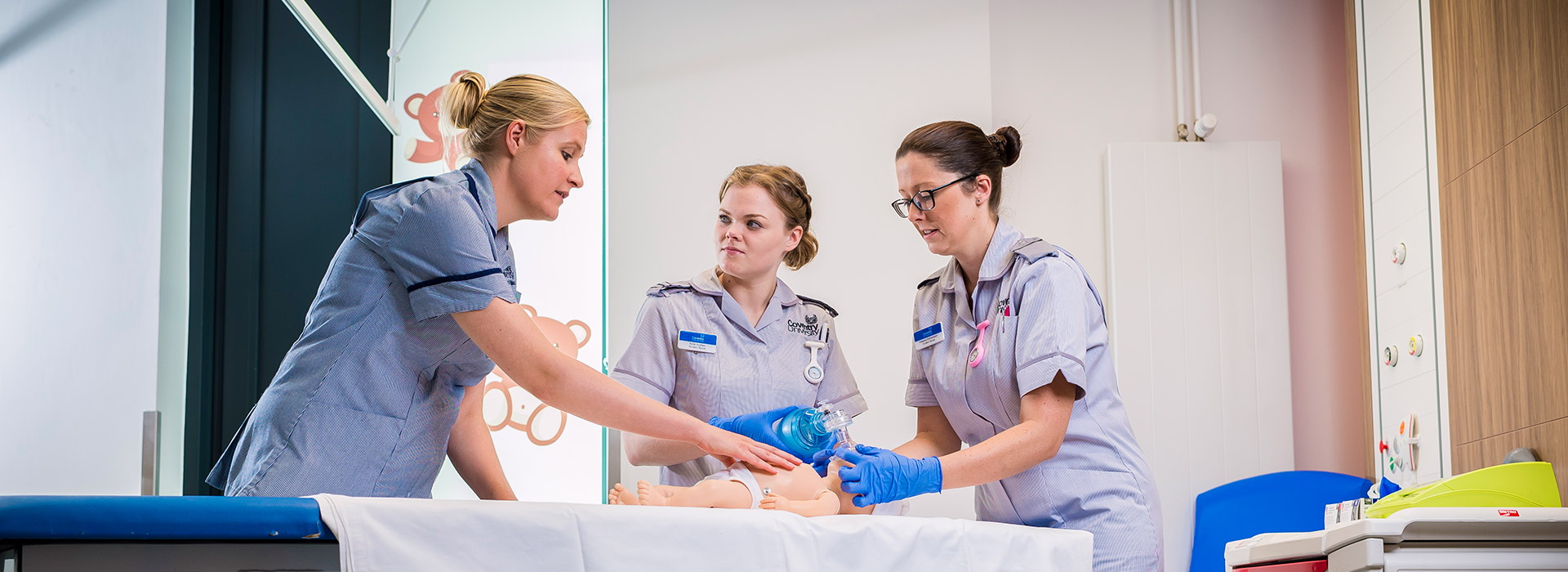
This course is designed to equip you with the hands-on clinical and care skills to become a caring practitioner well-prepared to meet the needs of children, young people and their families.
Coventry University (Coventry)
Full-time
3 years full-time
B730
September 2025
We are reviewing many of our School of Health and Care courses for 2025-26 entry to transform the teaching and learning. We are currently showing our 2024-25 course information, please keep checking back on this page to see our latest updates.
Fully accredited by the Nursing and Midwifery Council (NMC) providing eligibility for registration as a nurse on successful completion of the course (additional costs may apply).
This course has been designed to enable you to analyse the needs of, and develop and deliver effective care for, children from birth to young adulthood. You will consider their physiological needs, mental health and wellbeing in the provision of care and understand the importance of evidence informed practice, care and compassion.
The course focuses on integrated care for children and young people in a variety of settings. You will not only focus on acute/hospital settings, but also on community children’s nursing, supporting children with long-term chronic conditions, health visiting and child and adolescent mental health services.
You will be taught to value the needs of children and their families through their ongoing involvement in the curriculum. You will have the opportunity to develop skills in communication, health assessment, professional practice, evidence-based practice, knowledge of public health and policy, and legal and ethical issues.
Placing equal value on practice and theory, undertaking 800 hours of both per year, you will study a wide range of subjects, including anatomy and physiology, pharmacology, psychology, sociology and research methods. You’ll become immersed in learning about the needs of populations, individuals, related health and nursing services with an emphasis on using research to enhance and improve services.
From the outset, you’ll gain hands-on experience under supervision from qualified mentors, spending around 50% of your time on clinical practice placements5 in a range of healthcare environments within the NHS in hospitals and community placements, at private hospitals and independent care providers. We have well-established links with local partner NHS trusts and other healthcare providers, such as private hospitals, hospices, and community settings.
The facilities4 in the multi-million-pound Alison Gingell Building includes mock hospital wards, operating theatre, critical care settings, community housing and other real-life nursing environments relevant to practice. You will have the opportunity to make use of our extensive simulation facilities – from basic life support manikins to high tech simulation dummies, which emulate patient responses and test resuscitation skills. You will also use equipment found in the real world of practice, such as medical devices to assist with all elements of care and especially medication administrations.
While the course has a clear focus on nursing children and young people, a key benefit of our curriculum is the notion of collaboration across all areas of health and social care. Your studies will be complemented with significant insights into mental health, learning disability and adult nursing. Some modules are also studied in conjunction with other health and social care professionals; looking at specific issues and challenges they face to broaden your knowledge and expertise.
The curriculum has been designed to produce professionals who are effective communicators, caring and compassionate, with good relationship building skills. It recognises the importance of inter-professional working within the health and social care workforce and comprises two modules in the areas of health and wellbeing in the community as well as leadership and management. Your degree culminates with a 5,000 word literature review related to one aspect of nursing practice and which is equivalent to the standard dissertation.
The course is underpinned by an approach to professional care which is characterised by empathy, respect, dignity and kindness towards patients and their families. We will encourage you to develop an in-depth understanding of the organisation and culture of modern healthcare systems, which should equip you with the confidence to be able to take a stronger role in the leadership and management of resources in delivering treatment and healthcare options to patients. The aim is to prepare you for the dynamic and fast changing health and social care system, which should help you to develop into an adaptable, flexible, reflective, competent and compassionate practitioner.
All students on this course will qualify for a minimum payment from the Government of £5,000 per year, with additional payments for students incurring childcare costs6.
for Children’s Nursing
Guardian University Guide 2023
This course is accredited1 and recognised by the following bodies:
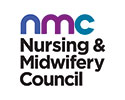
The course is accredited by the UK Nursing and Midwifery Council (NMC) for the 2024/25 intake and, providing you also meet the NMC requirements, on successful completion you will be eligible to apply for registration with the Nursing and Midwifery Council (subject to additional costs).
We have an excellent reputation for the quality of the education provided to trainee and qualified nurses.
Learn why you should study with us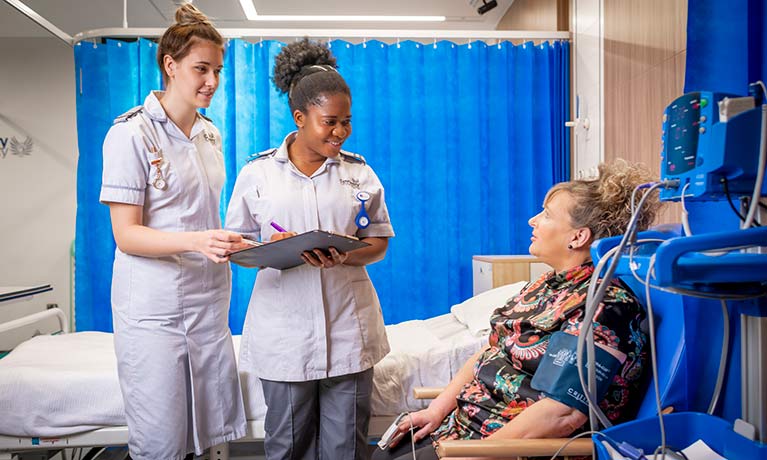
We regularly review our course content, to make it relevant and current for the benefit of our students. For these reasons, course modules may be updated.
This course uses a wide variety of approaches to teaching and learning to suit individual learning styles. This includes a series of interactive lectures with associated seminars, skills laboratory activities, simulations and practical placements5. All modules are mandatory so that upon successful completion you will have the knowledge, values and skills required to be able to work within integrated care settings and enhance the delivery of care for children, young people, their families and carers.
Gaining experience using simulation across a range of care settings is aimed at building your confidence and knowledge about how to act in these situations. This is designed so that you can practice and develop your clinical and interpersonal skills in a safe but realistic environment.
As 50% of the course is practice-based, when on placement you will spend approximately 40 hours per week in clinical areas, which will include nights and weekends. Contact teaching hours will vary throughout the course, but on average you will have around 21 ‘contact’ hours of teaching per week in year one. This generally breaks down as seminar preparation, group work, workshops, activity-led seminars and lectures.
In addition, you will be expected to undertake a further 15-20 hours each week of private study which can include self-directed learning and online activities which augment other approaches.
Over the duration of the course, as you become a more independent learner the contact hours will reduce (around 13 in year 2 and 11 in year 3) and independent study will increase.
The contact hours may be made up of a combination of face-to-face teaching, individual and group tutorials, and online classes and tutorials.
As an innovative and enterprising institution, the University may seek to utilise emerging technologies within the student experience. For all courses (whether on-campus, blended, or distance learning), the University may deliver certain contact hours and assessments via online technologies and methods.
This course will be assessed using a variety of methods which will vary depending upon the module. Assessment methods include:
The Coventry University Group assessment strategy ensures that our courses are fairly assessed and allows us to monitor student progression towards achieving the intended learning outcomes.
Our course provides international learning experiences to help prepare you for the global employment market as well as strengthen and develop your broader intercultural, personal and professional skills2.
Typical offer for 2024/25 entry.
2024/25 tuition fees.
| Student | Full-time | Part-time |
|---|---|---|
| UK, Ireland*, Channel Islands or Isle of Man | 2025/26 fees TBC 2024/25 fees - £9,250 per year |
Not available |
| EU | 2025/26 fees TBC 2024/25 fees - £9,250 per year with EU Support Bursary** 2025/26 fees TBC 2024/25 fees - £19,850 per year without EU Support Bursary** |
Not available |
| International | 2025/26 fees TBC 2024/25 fees - £19,850 per year |
Not available |
A non-repayable grant of £5,000 and extra payments worth up to £3,000 may be available to eligible home students for each year of study. Read more about this in the NHS Learning Support Fund information booklet.
For advice and guidance on tuition fees and student loans visit our Undergraduate Finance page and see The University’s Tuition Fee and Refund Terms and Conditions.
We offer a range of International scholarships to students all over the world. For more information, visit our International Scholarships page.
Tuition fees cover the cost of your teaching, assessments, facilities and support services. There may be additional costs not covered by this fee such as accommodation and living costs, recommended reading books, stationery, printing and re-assessments should you need them. Find out what's included in your tuition costs.
The rights of Irish residents to study in the UK are preserved under the Common Travel Area arrangement. If you are an Irish student and meet the residency criteria, you can study in England, pay the same level of tuition fees as English students and utilise the Tuition Fee Loan.
Following the UK's exit from the European Union, we are offering financial support to all eligible EU students who wish to study an undergraduate or a postgraduate degree with us full-time. This bursary will be used to offset the cost of your tuition fees to bring them in line with that of UK students. Students studying a degree with a foundation year with us are not eligible for the bursary.
Our multi-million-pound Alison Gingell Building features a range of mock healthcare settings, including hospital wards, ambulance, therapy suites and community houses, giving you the opportunity to replicate real-life situations before you go on placement4.
You’ll have the opportunity to make use of our extensive simulation facilities – from basic life support manikins to high tech simulation manikins, which emulate patient responses and test resuscitation skills. You will also use healthcare devices found in the real world of practice.
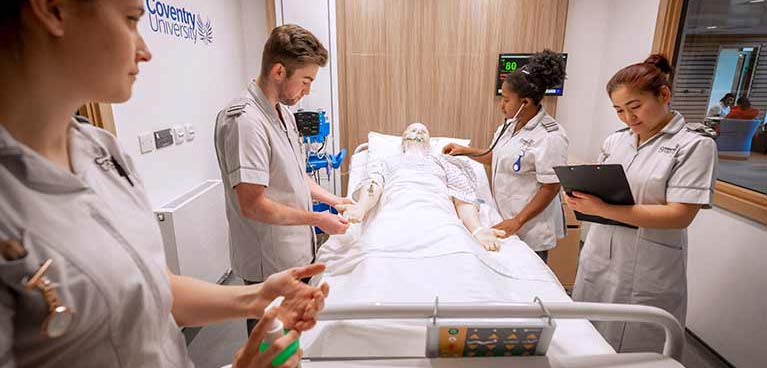
Our state-of-the-art Alison Gingell Building features mock hospital wards built to NHS standards, an operating theatre, critical care settings and other real-life nursing environments.
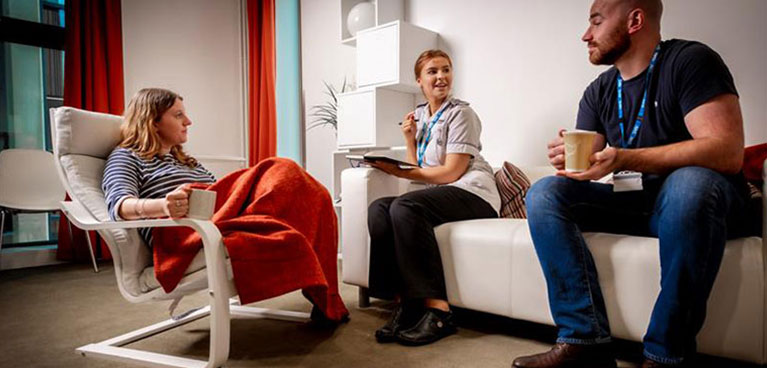
Learn how to work with patients outside of a hospital setting in our simulated, two full-size community homes, specifically built for teaching.
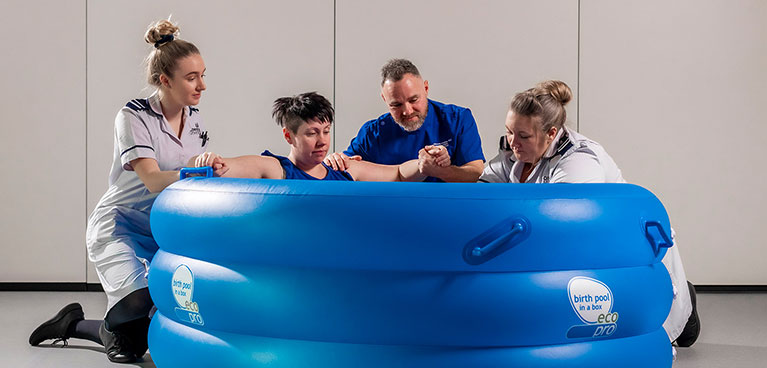
Our midwifery suite is equipped with delivery facilities including water birth options. Student midwives also use mannequins to simulate routine and emergency care for mothers and babies.
During your three years on this course you will undertake six placements (sourced by the university)5 in a range of service settings, working with and alongside qualified children and young people’s nurses, and therefore potential local and regional employers.
On graduating successfully from this course, you can apply for registration (subject to additional costs) with the Nursing and Midwifery Council (NMC), which enables you to practice immediately.
The majority of our graduates find employment as qualified nurses in the NHS with a growing emphasis on community settings, in acute hospitals, or within the private and independent healthcare sector. As your career progresses, a number of options may be open to you as a lecturer or specialist practitioner, advanced nurse practitioner, consultant nurse or manager. You could specialise in areas such as community children’s nursing, health visiting, neonatal nursing, paediatric intensive care nursing or move into areas such as management, teaching or clinical research.
Recent graduates have gone on to roles working on paediatric wards, neonatal units, hospice and respite care, children’s emergency departments and community children’s nursing.
You can choose to continue your studies at Coventry University with the Nursing Msc. You may be entitled to an alumni discount on your fees if you decide to extend your time with us by progressing from undergraduate to postgraduate study.
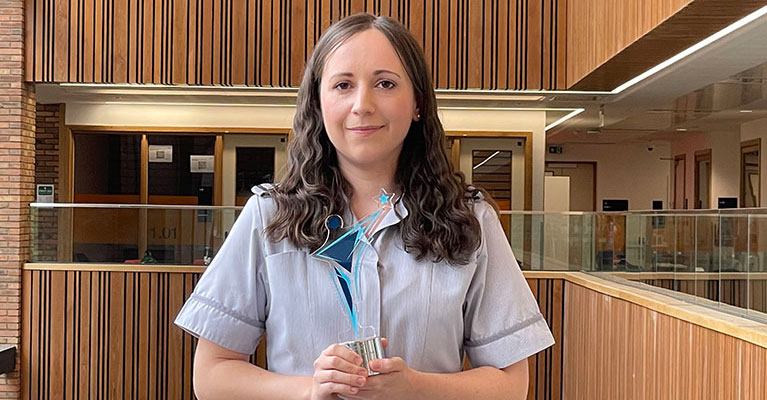
A nursing student at Coventry University who has juggled being a mum, a learner and volunteering in Africa has won a national award.
Based on current information from the UK Government, international students whose study extends beyond summer 2021 may be eligible for a visa under the UK Government’s Graduate Immigration Route, which will enable students to stay and work, or look for work, in the UK at any skill level for up to two (2) years. Check the most up to date guidance available to check your eligibility and any updates from the UK Government before making an application or enrolment decision.
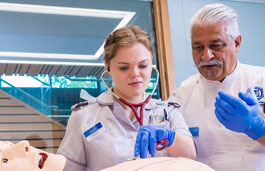
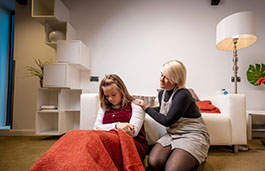
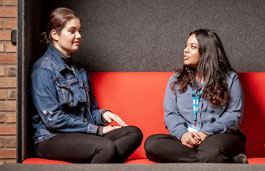
There's still time to apply
We have places available on courses starting in September 2025. Find out more about the UCAS process and the different ways you can apply.

